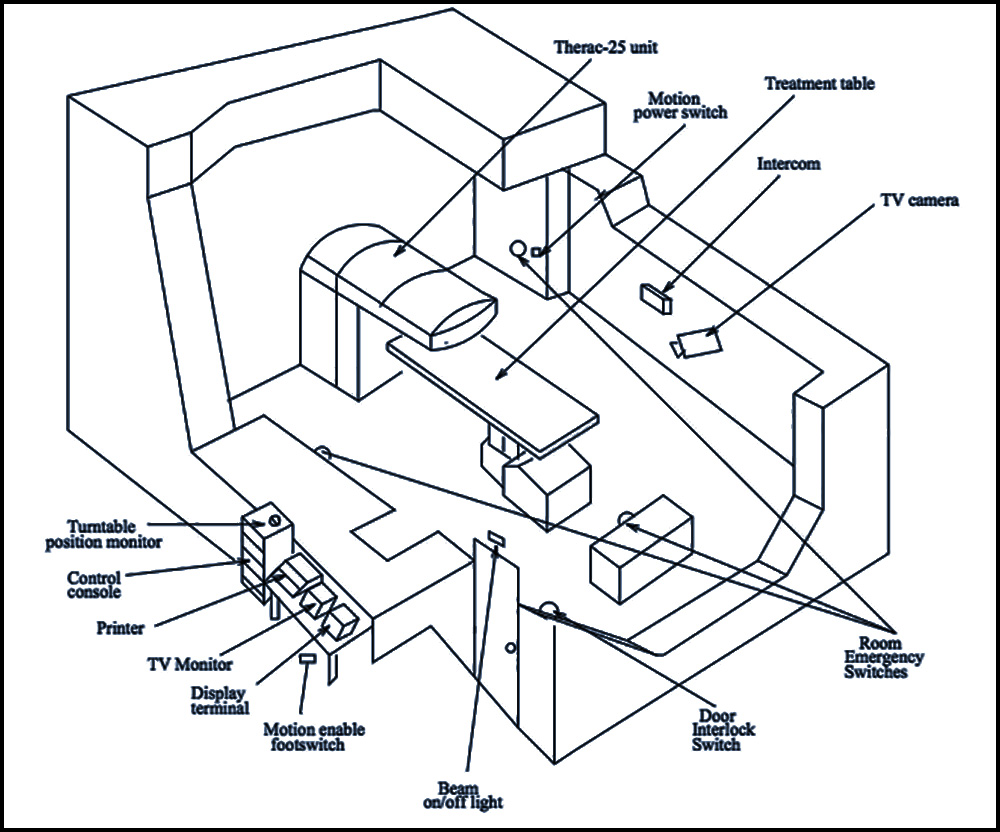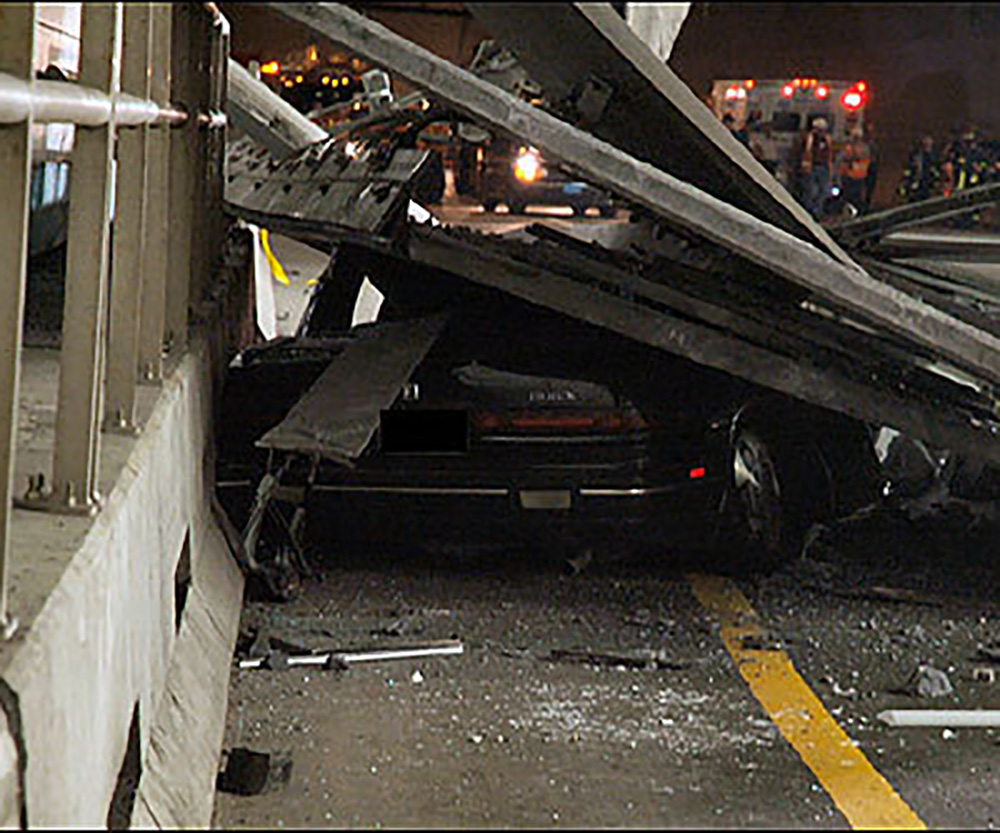Before the Bridge Falls Down
Elyse Paneral knew what she was signing up for when she enrolled at the Massachusetts Institute of Technology. “It’s all technical all the time,” says Paneral, a 21-year-old chemical engineering major from Athens, Georgia. “There’s not a lot of emphasis on how we relate to the rest of the world.”
She has big questions and concerns she wishes her professors would address — topics like global warming, genetic engineering, and how automation might decimate the economy. But aside from one lecture in her thermodynamics class on climate change, Paneral says she’s gotten mostly silence from her engineering professors on the social impacts of technology. Nor have her instructors talked about professional challenges she’ll face as a chemical engineer, like pressure to cut corners or hide mistakes.
Even as news of Volkswagen’s cheating on emissions controls has made headlines for more than a year, Paneral says professors have not talked about the importance of doing the right thing as engineers.
“In this field, if there’s an error, you’re not just looking at a product recall. A lot of people can die,” she says. “In industry, there’s going to be a lot of pressure on you to just get the job done sometimes. I think it’s really important to put some thought into the dilemmas you might face.”
The complaint echoes what experts have been saying for decades: Engineering schools should do more to prepare students for the ethical challenges they’ll face as individual workers — and as an industry. In careers like law and medicine, new entrants swear to uphold a professional code of conduct when they get licenses required to practice.
In contrast, engineering licensure in the U.S. varies widely — both by discipline and by jurisdiction. And while nationwide engineering organizations like the National Council of Examiners for Engineering and Surveying offer guidance and professional exams for licensing — most of which include some discussion of ethical guidelines — the details of implementation and enforcement are handled at the state level. For graduate engineers who aren’t directly designing materials or infrastructure for public use, a Professional Engineer, or PE license, is often not a requirement for employment.
In practice, this means that unless they are exposed to a robust curriculum of professional ethics at the college or university level, many engineers — licensed or not — will have only a perfunctory education in the importance of doing the right thing.
In September, long-time Volkswagen engineer James Robert Liang pleaded guilty in a case involving software in VW cars that was tweaked to fool emissions tests.
“Engineers and computer scientists are in a position to have a disproportionate impact on society,” says Richard Burgess, an instructor at the National Institute for Engineering Ethics at Texas Tech University. “We could be doing a better job, and so could every other university as well.”
Academics started writing about ethics in engineering in the 1970s and ’80s in response to disasters like the Three Mile Island and Chernobyl nuclear accidents, and the explosion of the space shuttle Challenger, says Joe Herkert, a visiting scholar at the Genetic Engineering and Society Center at North Carolina State University.
But it wasn’t until around 1994 that industry leaders and professional organizations pushed to overhaul engineering education to include ethics. Norman Augustine, then chairman and chief executive officer of the Martin Marietta Corporation, suggested that as the Cold War came to a close, engineering education required a new set of guiding principles.
“Rather than a world based largely on superpower competition and national security,” noted a 1994 report from the American Society for Engineering Education, “engineers now faced a world of intense international economic competition and widespread public uncertainty about the uses of technology.”
The report, titled “Engineering Education for a Changing World,” went on to insist that “[e]engineering administrators and faculty must help students understand that throughout their careers they will encounter ethical issues which they will need to recognize and deal with rationally … Their decisions affect the lives and property of the greater community. Students must understand the importance of upholding that public trust.”
A survey compiled in 2000 determined that most engineering schools — roughly two-thirds — did not require coursework in ethics. At about the same time, the Accreditation Board for Engineering and Technology — the Baltimore-based agency, now known as ABET, Inc., that accredits most engineering, computing, and science programs in the U.S. — began putting greater emphasis on ethics instruction, which may have prompted more schools to incorporate ethical training into their curricula.
Among other things, ABET requires that students graduate with an understanding of ethics and professional responsibilities, the “broad education necessary to understand the impact of engineering solutions in a global and societal context,” and a “knowledge of contemporary issues.”
Still, reliable tallies of which schools include mandatory ethics classes and which don’t are hard to come by. The Center for Engineering Ethics and Society recently highlighted more than twenty schools — including the Colorado School of Mines, Virginia Tech, and MIT — that offer “exemplary” courses that connect ethics with engineering practice.
Most of the examples are electives.

But many schools satisfy the requirement with a single lecture on ethics, Herkert says. “Universities are doing a better job than they used to, but fundamentally, ethics aren’t valued.”
As a result of the ethics requirement, “students know you shouldn’t take bribes,” says Patricia Brackin, a professor at the Rose-Hulman Institute of Technology in Terre Haute, Indiana, and chair of ABET’s criteria committee. “That’s great, but that’s pretty low on the ethical thinking level.”
Brackin’s committee has proposed changing the ethics criteria to make the outcomes “more concrete.” They want engineering graduates to “recognize ethical and professional responsibilities in engineering situations and make informed judgments, which must consider the impact of engineering solutions in global, economic, environmental, and societal contexts.”
ABET doesn’t stipulate how engineering programs should meet this goal. But, Brackin says, “you can’t just do this in one sitting.” Her opinion, she explains, is that ethical decision-making needs to be talked about “across the curriculum,” and she compares it to writing requirements. If you want students to write well, they have to write in every class, not just Composition 101. “It’s the same with ethics,” she says.
Still, Brackin recognizes that not all engineering professors are philosophers.
“Maybe they’re not an expert in ethics, but they better be able to talk about their own ethical and professional responsibilities,” she says. “If not, then we’re in big trouble.”
Andrew Feldman, who graduated from MIT last year with a degree in electrical engineering and computer science, can’t remember his professors talking about ethics. His senior year he took a systems-design class in computer science that discussed the laws of unintended consequences and how people will use these tools for hacking and identity theft. It was a good discussion of the “ethical challenges,” he says, but not enough.
“A lot of people at MIT will go on to be pretty powerful,” says Feldman, 22. “You want them to be acquainted with these things.”
At MIT, it’s up to each department to address what students are taught about ethical responsibilities, and Dean of Engineering Ian Waitz acknowledges that “it’s not something that they’re getting in a substantial way.”
“There are a lot of constraints,” he said, including heavy math and science requirements and a limit on how many courses each student can be required to take.
Waitz points to surveys conducted by the university in 2013 as evidence that students think the university is doing a good job on this front. Out of more than 400 alumni who had graduated in the previous five to nine years, three-quarters said MIT had at least adequately prepared them to “identify ethical and moral issues,” though more than a third said the university should put more emphasis on “promoting moral and ethical development.”




Bernhardt Trout, a professor of chemical engineering, thought students needed a place to dive deeply into the ethical challenges unique to engineers. He recalled his own disappointment when he graduated from MIT in the late 1980s: “The engineering classes were fantastic, but I didn’t get a broad perspective on what I had chosen to do — engineering — and the significance of that for society.”
When he came back as a professor, Trout started his own ethics program, which students can take as an optional elective. In the signature class, students read Aristotle, Immanuel Kant, and — most important — more than a dozen real-life case studies of engineering plans gone awry.
For Paneral, who’s taking Trout’s ethics class, reading case studies “gives you a bigger bank for thinking about the ways things can go wrong,” she says. “It’s hammered home the stakes for me. In practice, I will probably be slightly more cautious.”
Paneral and other classmates say the course should be required for all engineering students at MIT — a sentiment that has been percolating for at least 20 years: In 1997, a student curriculum committee at the institute made a similar suggestion, recommending that ethics, including case studies, “be considered part of the core education of MIT, for which the entire faculty has responsibility.”
Today, all students are required to take one humanities, arts, or social science class each semester. But Trout says he believes all would-be engineers should be exposed to a significant ethics class like his – though he adds that he’s “loath” to push for a requirement, given that engineering students at MIT are already overburdened.
As it stands, many students won’t always come to ethics on their own.
“You want to spend as much time doing math and engineering as possible,” says Anna Sinelnikova, a 20-year-old computer science major at MIT interested in artificial intelligence. “And an ethics class is more relaxed. It’s less mathematically rigorous. People might see it as a joke compared to their hard-core math. I would choose more hard-core classes.”
The Tacoma Narrows bridge in Washington undulated violently and eventually collapsed on Nov. 7, 1940, amid high winds. The incident has become a cautionary tale in engineering.
That’s not an option at Texas Tech University, which requires all engineering students to take a full-semester ethics class that deals with dilemmas individual engineers might face along with ethical challenges for the industry such as climate change, autonomous vehicles and cyber security.
The instructor, Richard Burgess, also teaches classes to engineers in the workforce who’ve violated an ethical code of conduct and have been required by the state’s board of professional engineers to take an ethics class. They’re not excited when they sign up, he says, but at the end they all say they wish they’d taken a class like this in college.
Andrew Feldman agrees. Now that he’s out in the working world, part of a 15-person telecommunications start-up, he’s questioning his education and his laser focus on math and engineering theory. “Ninety-five percent of what I do is manage a set of responsibilities,” he says. “I worried so much about learning enough theory. Now I have a deficit in the other areas that are more important.”
Bianca Vázquez Toness is a journalist based in Cambridge, Massachusetts, who writes about technology and its impact on people. A 2016-17 Knight Science Journalism fellow, she most recently covered India’s technology and telecommunications industries for Bloomberg News.











Comments are automatically closed one year after article publication. Archived comments are below.
My father was a structural design engineer from the 1940s through the 1970s; he died in 1978. He initially worked with steel, and then prestressed concrete. He was an extremely honest man and a perfectionist about everything he did. He didn’t talk about himself all that much, but he once told me a story about when some men came into his office and tossed an envelope with a wad of money inside, in an attempt to persuade him to violate the building code by reducing the amount of steel in the building he was designing for them, so that they could save money. My dad, who was about 5’7″ and 130 pounds, said to them “Get the hell out of my office.” I wish he had lived longer so that I could have learned more about this event and other aspects of his life and work.
I really enjoyed reading this contribution!
Ethics should be a part of every college student’s course work. My son is a Freshman and one of his electives is in ethics. Only a well-educated engineer in ethics can be a guiding force for good. Our company’s engineers only work on foot care related products but we always tell them to only do good by the patient.
Teri Green
Atlas Biomechanics
Ethics in engineering education should start with civil engineering & construction, viewed as the most corrupt of all industries in just about every country worldwide according to Transparency International, with plenty of journalistic exposure. There might also be value in taking a retrospective look at the price-fixing conspiracies in the electrical equipment industry back in the 1960s, as since (e.g., Siemens). Engineers were complicit in all this, as in the VW scandal. And there’s plenty of questionable behavior by engineers engaged in, for instance, chasing defense contracts (and also business-to-business contracts).
A good deal of what is sometimes subsumed under ethics, conversely, would be better viewed as poor engineering practice. That’s true of at least some of the more spectacular failures — i.e., those not in fact plainly recognized before the failure. There are of course plenty of lessons there too, but not necessarily lessons in ethics.